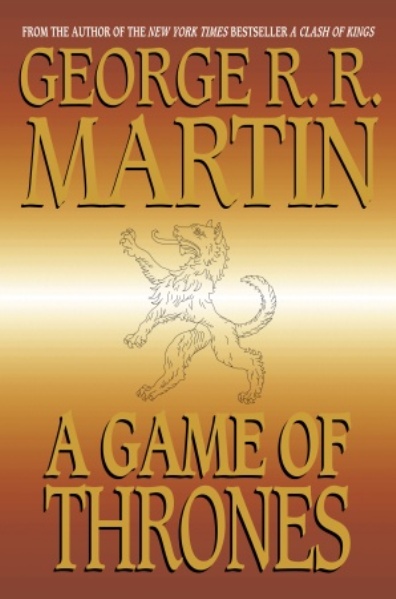
Fantasy is not “Boy Fiction”
Written by: Beth Woodward, CC2K Books Editor

In honor of the third season premiere of Game of Thones, I’m revisiting my piece regarding the sexist tropes that came out in early reviews of the series. In the time since I wrote this, I’ve become a huge fan of the show, and I believe it has some of the best female characters on television. So my original point stands: fantasy is definitely not ‘boy fiction.’
A few days ago, CC2K’s admin extraordinaire Tony Lazlo linked to a New York Times review of the new Game of Thrones miniseries on HBO, based on the book by George R. R. Martin. (Tony wasn’t endorsing this article, merely pointing to it as an example of some of the more condescending responses to the miniseries.) The review, written by Ginia Bellafante, was very critical of the series. Fair enough. But in the article, she made two assertions that troubled me: that fantasy is “boy fiction,” and that it must be spiced up with graphic sex scenes.
Oh boy. Where do I begin?
I haven’t read Game of Thrones, nor have I seen the miniseries. But I wanted to speak to Ballafante’s more generalized assertions about females and fantasy fiction.
I am a girl. I have all the appropriate girl parts. I also, as any regular reader of my column knows, love fantasy. Not just books, either: my fantasy love extends to movies and television, too. When I was about 13 or so, one of my favorite shows was Spellbinder, an Australian series about a teenager who gets sucked into a parallel, medieval-esque world. In high school and college, I was a huge Buffy the Vampire Slayer fan, loving how she grew in strength and maturity throughout the series. And now, I am a huge devotee of urban fantasy, loving the way it mixes supernatural possibility into gritty, realistic settings.
I love fantasy because it opens whole new worlds, because it makes the impossible possible.
And I’m not the only one. Our very own TV Editor, Phoebe Raven, is a huge Lord of the Rings fan, and she could school me on Buffy trivia any day. My mom is a huge sci-fi/fantasy/horror buff, so much so that she makes me look like a casual fan.
If fantasy is “boy fiction,” how come most of my favorite fantasy writers — Patricia Briggs, Carolyn Crane, Jeaniene Frost, Diana Gabaldon, Stacia Kane, Karen Marie Moning, Seanan McGuire, Nicole Peeler, as well as many, many others — are females?
Maybe we’re all just confused about our genders.
As for the second claim, that fantasy needs to be spiced up with graphic sex for women to enjoy it…uhhh, what? Since when have women been the primary fans of graphic sex? I go back to my previous examples. A few years ago, I tried to get my mom hooked on True Blood; she didn’t enjoy it because there was too much sex. And Phoebe told me recently that, when reading/watching Lord of the Rings, she wanted “less Arwen and more battles.”
I, on the other hand, love graphic sex scenes—at least, inasmuch as they serve the story. If a graphic sex scene helps develop the relationship and the characters, bring it on. But gratuitous sex—which is what Bellafante seems to imply occurs in Thrones—doesn’t work for me. If I don’t care about the relationship, why should I care about the sex? (See my article on why romance novels are girl porn.) And there are certainly a lot of fantasy novels that have romantic subplots, as well as romance novels with strong fantasy elements. But I also read fantasy novels with no sex or romance whatsoever, just as I read romance with no fantasy. I don’t mind getting both together; it’s like having my cake and eating it, too. But I don’t require one for the other.
According to Bellafante, she has never met a woman who “stood up in indignation at her book club and refused to read the latest from Lorrie Moore unless everyone agreed to ‘The Hobbit’ first.” I confess, I didn’t know who Lorrie Moore was, so I had to look her up. According to Wikipedia, Moore writes “humorous and poignant short stories” about “failing relationships and terminal illness.”
Ugh. Count me as the woman who would lobby for The Hobbit over Lorrie Moore any day.
It’s 2011; why are we still trying to divide fiction into “boy fiction” and “girl fiction?” What does that accomplish, other than dividing us along gender and genre lines? Fantasy is not for everyone. As many people as I know who love fantasy, I know just as many people who won’t touch it with a ten-foot pole. That’s fine. More power to them. But it doesn’t have anything to do with whether they have a Y-chromosome or not. Let’s not try to disguise genre snobbery as a discussion of gender politics.
